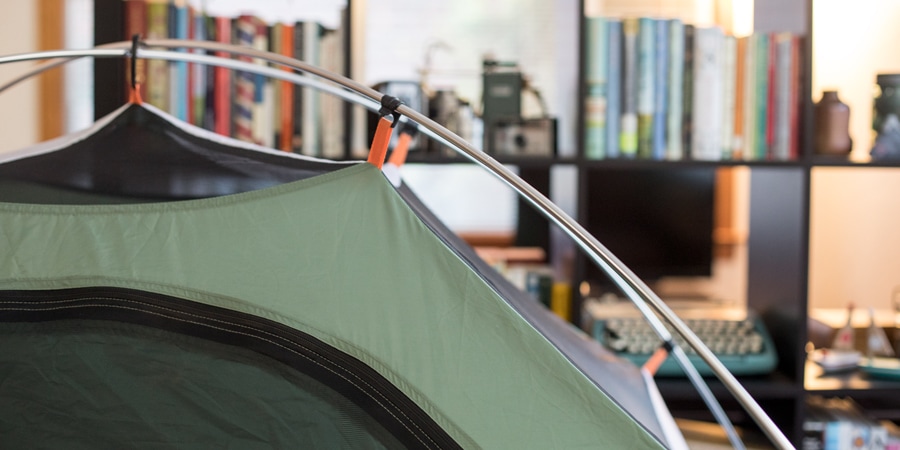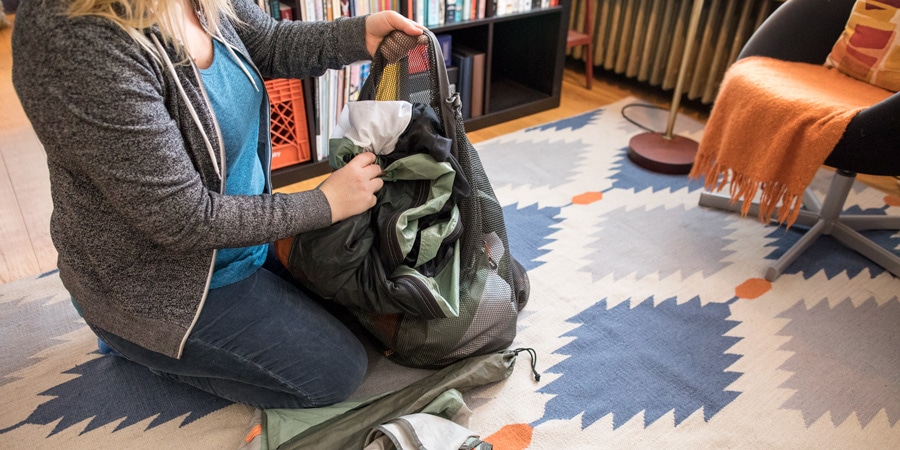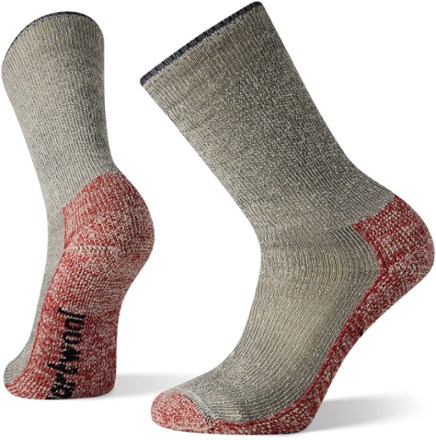Upon returning home from a big adventure, it can be tempting to plop your gear down and not deal with it for a while. But taking the time to unpack and put items away properly will help ensure you get years of faithful service out of your equipment.
This is especially true for your tent: Improper storage can quickly lead to mildew growth and material breakdown. To help prevent issues like these, simply follow two key steps for storing your tent:
- Make sure your tent is completely dry.
- Store it loosely in a cool, dry place.
Step 1: Dry Your Tent

If you do nothing else, make sure that your tent is dry before you store it. A tent that is put away damp will develop mildew, which will give your tent a funky odor. The moisture can also potentially damage the polyurethane waterproof coatings beyond repair. If you've ever had a tent that became flaky, tacky or smelly, that's likely because it was not dry before you stored it.
To keep this from happening, dry your tent out by setting it up indoors or in a shaded outdoor spot. If you don't have enough space to pitch it, drape it or hang it until dry.
Keep it clean: If you returned home from your outing with a dirty tent, taking the time to clean it can help improve longevity, especially if it was exposed to sand, fine dust, bird droppings and tree sap.
Use cold water and mild, non-detergent soap to spot clean dirty fabric. To get sap off, let the sap dry and then try gently spot cleaning with mineral oil or other alcohol-based products, like hand sanitizer or wet wipes. Be sure to rinse well with water afterward.
To keep your zippers running smooth, use an old toothbrush to remove grit. Learn more about cleaning your tent.
Step 2: Store Your Tent Loosely in a Cool, Dry Place

Keep it loose: Though nicely compact for backpacking, the stuff sack that came with your tent is a poor choice for long-term storage. You want tent fabrics to relax and breathe. An old pillowcase or similarly sized mesh bag will work well. You can neatly fold your tent up and place it in the bag or simply stuff it in.
Reduce tension: For tent poles, you can extend the life of the shockcord by storing the poles partially assembled to take tension off the cord. But not everyone has space to do this, so another option is to break the poles down by starting in the middle and working toward the ends. Collapsing poles down like this evenly distributes tension along the cord.
Keep it cool: When looking for a place to keep your tent, try to find a dry, cool spot in your home. This means avoid storing it in damp or hot locations like a basement, attic or car trunk. A gear closet or garage are both good options.




